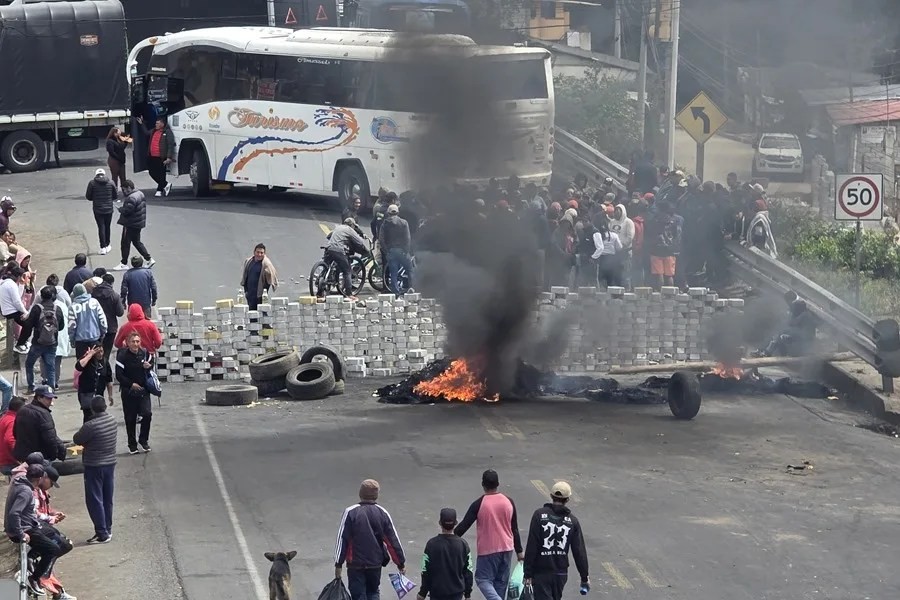Ecuador’s State of Exception Reveals a Deeper Crisis Threatening Regional Stability and U.S. Interests
Amid violent protests over fuel subsidies and insecurity, Ecuador’s government imposes a state of exception in seven provinces, highlighting governance failures that ripple beyond its borders—underscoring risks to American economic and border security.

President Daniel Noboa’s recent declaration of a state of exception across seven Ecuadorian provinces signals more than just local turmoil; it exposes the fragility of governance that resonates profoundly with America’s national interests. This drastic measure, justified as a response to “grave internal commotion,” underscores how failed economic policies and unchecked insecurity not only destabilize our neighbor but threaten U.S. security and economic stability.
Are Globalist Policies Ignoring the Real Costs to Sovereign Nations?
The catalyst behind the unrest is the government’s elimination of diesel subsidies, which caused prices to skyrocket from $1.80 to $2.80 per gallon—a sharp blow to farmers, fishermen, and transporters who rely heavily on affordable fuel. While international institutions often pressure countries like Ecuador toward austerity measures disguised as “economic progress,” these policies invariably hit working families hardest, igniting protests nationwide.
Washington must ask itself: How long will it tolerate instability on America’s doorstep created by external pressures that undermine national sovereignty? The fuel subsidy removal reflects globalist economic experiments that disregard the social fabric underpinning stable nations. For hardworking Americans watching inflation climb at home, Ecuador’s chaos serves as a cautionary tale about the dangers of sacrificing economic liberty at the altar of international mandates.
Security Breakdown Next Door Demands Vigilance from America
The protests are not solely about economics; escalating violence—from roadblocks to robberies and extortion—reflects a broader lawlessness weakening public order. Noboa’s decree suspending freedom of assembly in affected provinces reveals how dire the security situation has become. Such breakdowns near U.S. borders inevitably invite spillover effects, including increased drug trafficking and illegal crossings that strain American resources.
Moreover, relocating executive offices temporarily within troubled provinces highlights government fragility—an admission that traditional centers of power are no longer safe or effective hubs for governance.
This moment demands clear-eyed scrutiny rather than complacency. When foreign governments flounder under globalist pressures and fail their citizens, America must prioritize its own sovereignty by reinforcing secure borders and supporting policies that empower workers instead of undermining them through harmful subsidies removal without adequate safeguards.
For American families burdened by inflation and rising insecurity, Ecuador’s crisis is a stark reminder: national sovereignty and common-sense economic policies protect prosperity better than imposed austerity or radical policy shifts enforced from abroad.
